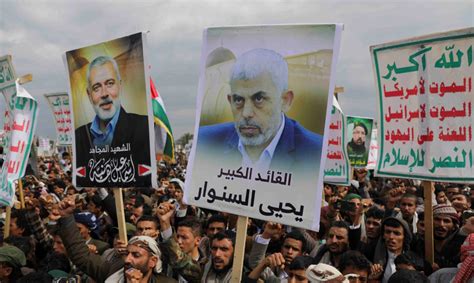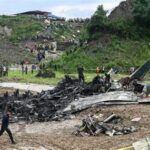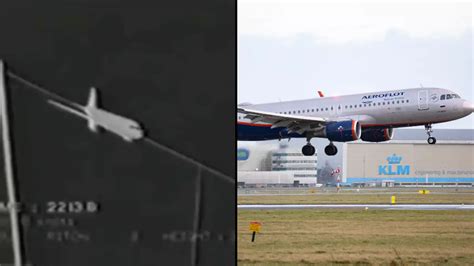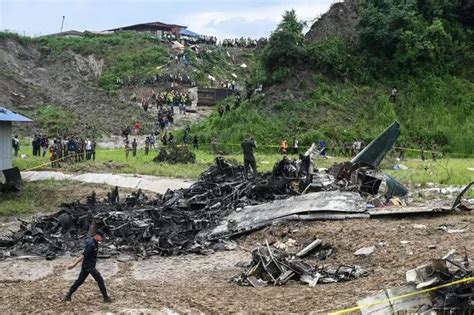
Israel has reportedly launched a multifaceted assault on Iranian interests, marked by alleged targeted killings of Iranian military officials and heightened cyber warfare activities, raising concerns about escalating tensions and the potential for a wider conflict.
In recent weeks, a series of high-profile deaths within the Iranian military and scientific communities has fueled speculation about a deliberate campaign by Israel aimed at disrupting Iran’s regional influence and nuclear ambitions. While Israel has maintained its longstanding policy of ambiguity regarding specific operations, security analysts and intelligence sources suggest a coordinated effort to weaken Iran’s capabilities through targeted eliminations and technological disruptions.
According to intelligence sources speaking to Yahoo News, Israel is employing a three-pronged strategy: physical operations targeting key figures, intensifying cyberattacks on critical infrastructure, and covert support for opposition groups within Iran. The “decapitation” of senior Iranian military leaders, particularly those involved in advanced weapons programs and regional operations, appears to be a central objective. The timing and precision of these actions have led many observers to conclude that a coordinated Israeli campaign is underway, potentially signaling a new phase in the long-standing shadow war between the two nations.
One senior intelligence official, speaking on condition of anonymity, stated: “The gloves are off. We are in a new arena. Iran needs to understand that every action has a reaction.” This statement underscores the heightened sense of urgency and willingness to escalate operations, suggesting a significant shift in Israel’s strategic calculus.
The recent series of incidents include the alleged assassination of a key figure involved in Iran’s drone program, as well as a string of mysterious explosions at military facilities and research centers. These events have been attributed to Israeli intelligence agencies, although no official claims of responsibility have been made. The pattern of these incidents points to a deliberate effort to undermine Iran’s military and technological capabilities, particularly those deemed to pose a direct threat to Israel’s security.
In addition to physical operations, Israel has reportedly intensified its cyber warfare activities, targeting critical infrastructure such as power grids, communication networks, and military systems. These attacks are designed to disrupt Iran’s ability to conduct military operations and maintain essential services, further weakening its overall capabilities. The use of sophisticated cyber weapons allows Israel to inflict significant damage without risking direct military confrontation, making it an attractive option for escalating pressure on Iran.
Furthermore, Israel is believed to be providing covert support to opposition groups within Iran, aimed at destabilizing the regime and fomenting internal unrest. This support includes financial assistance, training, and intelligence sharing, aimed at empowering dissidents and weakening the government’s grip on power. While the extent of this support is difficult to verify, analysts believe that it plays a significant role in Israel’s overall strategy to contain Iran’s influence.
The escalation of these activities raises serious concerns about the potential for a wider conflict. Iran has vowed to retaliate for the alleged assassinations and cyberattacks, and any miscalculation or escalation could quickly spiral out of control. The risk of direct military confrontation between Israel and Iran, or between Israel and its regional proxies, is a growing concern for international policymakers.
The Biden administration has expressed concern over the escalating tensions and has urged both sides to exercise restraint. However, the administration has also reaffirmed its commitment to Israel’s security and its right to defend itself against Iranian aggression. The United States has been working to de-escalate tensions through diplomatic channels, but progress has been limited. The situation remains highly volatile, and the potential for further escalation is significant.
The alleged Israeli campaign represents a significant escalation in the long-standing shadow war between the two nations. The potential consequences of this escalation are far-reaching, and the international community is watching closely to see how the situation unfolds. The actions taken by Israel and Iran in the coming weeks will be critical in determining whether the region descends into a wider conflict or manages to find a way back from the brink.
The recent events are taking place against a backdrop of heightened regional tensions and a stalled nuclear agreement. The collapse of the JCPOA has emboldened both Iran and Israel, leading to a more assertive posture on both sides. Israel sees Iran’s nuclear program as an existential threat and is determined to prevent Iran from acquiring nuclear weapons. Iran, on the other hand, views its nuclear program as a deterrent against Israeli aggression and a means of asserting its regional influence.
The situation is further complicated by the involvement of other regional and international actors. Saudi Arabia and other Gulf states share Israel’s concerns about Iran’s nuclear program and regional ambitions. Russia and China, on the other hand, have close ties with Iran and have been critical of Israel’s actions. The involvement of these actors adds another layer of complexity to the situation and makes it more difficult to find a diplomatic solution.
The escalating tensions between Israel and Iran pose a significant challenge to regional stability and international security. The international community must work together to de-escalate tensions and find a way to prevent a wider conflict. This requires a concerted effort to address the underlying issues that are driving the conflict, including Iran’s nuclear program, its regional ambitions, and the unresolved Israeli-Palestinian conflict.
In-Depth Analysis
The recent alleged Israeli actions against Iranian targets represent a significant escalation in the ongoing covert conflict between the two nations. This shift can be attributed to several factors, including a perceived failure of international diplomacy to curb Iran’s nuclear ambitions, a more assertive Israeli security posture under the current government, and advancements in Israeli intelligence and operational capabilities.
Strategic Rationale
Israel’s strategic rationale for this aggressive approach stems from its belief that Iran poses an existential threat. Israeli officials have consistently stated that they will not allow Iran to develop nuclear weapons, viewing such an outcome as an unacceptable risk to Israel’s security. The alleged targeted killings and cyberattacks are seen as a means of delaying or disrupting Iran’s nuclear program, weakening its military capabilities, and deterring further aggression.
Operational Capabilities
The effectiveness of Israel’s alleged operations highlights its advanced intelligence gathering and operational capabilities. The ability to identify and target key individuals within Iran’s military and scientific communities, as well as to penetrate Iranian cyber defenses, demonstrates a high level of technical expertise and strategic planning. These capabilities are the result of years of investment in intelligence gathering, technological development, and special operations training.
Risk Assessment
While Israel’s actions may achieve short-term tactical gains, they also carry significant risks. The potential for Iranian retaliation is high, and any miscalculation or escalation could lead to a wider conflict. The risk of a direct military confrontation between Israel and Iran, or between Israel and its regional proxies, is a growing concern. Furthermore, the alleged assassinations and cyberattacks could further destabilize the region and undermine efforts to find a diplomatic solution to the Iranian nuclear issue.
Regional Implications
The escalating tensions between Israel and Iran have significant implications for the wider region. Saudi Arabia and other Gulf states share Israel’s concerns about Iran’s nuclear program and regional ambitions, and they may be emboldened by Israel’s actions. However, they also fear the potential for Iranian retaliation and the destabilizing effects of a wider conflict.
International Response
The international community is divided over how to respond to the escalating tensions between Israel and Iran. The United States has expressed concern over the situation and has urged both sides to exercise restraint. However, it has also reaffirmed its commitment to Israel’s security and its right to defend itself against Iranian aggression. European powers have also called for de-escalation, but they have struggled to find a way to bridge the gap between Israel and Iran.
Potential Scenarios
Several potential scenarios could unfold in the coming weeks and months. One scenario is that the escalating tensions will lead to a wider conflict, either through direct military confrontation or through proxy wars. Another scenario is that the international community will be able to broker a diplomatic solution that addresses the concerns of both Israel and Iran. A third scenario is that the situation will remain in a state of tense stalemate, with both sides continuing to engage in covert operations and cyberattacks.
Long-Term Outlook
The long-term outlook for the region is uncertain. The underlying issues that are driving the conflict between Israel and Iran, including Iran’s nuclear program, its regional ambitions, and the unresolved Israeli-Palestinian conflict, are unlikely to be resolved in the near future. This means that the potential for further escalation and conflict will remain high.
The Cyber Dimension
The cyber warfare aspect of the alleged Israeli campaign is particularly noteworthy. Cyberattacks offer a means of inflicting significant damage on Iran’s infrastructure and military capabilities without risking direct military confrontation. However, they also carry the risk of escalation, as Iran could retaliate with its own cyberattacks. The use of sophisticated cyber weapons raises complex legal and ethical questions, and the lack of clear international norms governing cyber warfare makes it difficult to hold perpetrators accountable.
Internal Iranian Dynamics
The alleged Israeli support for opposition groups within Iran adds another layer of complexity to the situation. The extent of this support is difficult to verify, but it could potentially destabilize the regime and foment internal unrest. However, it also carries the risk of unintended consequences, as it could lead to a crackdown on dissent and further repression of human rights.
Impact on Nuclear Negotiations
The escalating tensions between Israel and Iran could also have a negative impact on efforts to revive the JCPOA. Iran may be less willing to negotiate if it feels under pressure from Israel, while Israel may be less willing to support a deal if it believes that it does not adequately address its security concerns. The collapse of the JCPOA could further embolden both sides and increase the risk of a wider conflict.
The Role of Proxies
Both Israel and Iran rely on proxy forces to advance their interests in the region. Iran supports groups such as Hezbollah in Lebanon and Hamas in Gaza, while Israel has been accused of supporting various rebel groups in Syria. The use of proxies allows both sides to engage in indirect conflict without risking direct military confrontation. However, it also carries the risk of escalation, as a miscalculation by one side could lead to a wider conflict.
Economic Considerations
The escalating tensions between Israel and Iran also have economic implications for the region. The threat of conflict could deter foreign investment and disrupt trade, while the cost of military spending could divert resources from other sectors of the economy. The economic consequences of a wider conflict could be devastating for the region.
The Human Cost
The human cost of the escalating tensions between Israel and Iran should not be forgotten. The potential for civilian casualties is high, and the displacement of populations could lead to humanitarian crises. The psychological impact of living under the threat of conflict can also be significant.
Conclusion
The alleged Israeli campaign against Iranian interests represents a dangerous escalation in the long-standing shadow war between the two nations. The potential consequences of this escalation are far-reaching, and the international community must work together to de-escalate tensions and prevent a wider conflict. This requires a concerted effort to address the underlying issues that are driving the conflict, including Iran’s nuclear program, its regional ambitions, and the unresolved Israeli-Palestinian conflict. Only through diplomacy and dialogue can a peaceful resolution be found. The current trajectory suggests a heightened risk of miscalculation and escalation, underscoring the urgent need for a comprehensive strategy to manage the crisis.
Frequently Asked Questions (FAQ)
1. What evidence suggests Israel is behind the alleged attacks on Iranian targets?
While Israel maintains a policy of ambiguity and neither confirms nor denies involvement, intelligence sources and security analysts point to the timing, precision, and nature of the attacks as indicative of Israeli involvement. These include targeted assassinations of key Iranian military and scientific figures, sophisticated cyberattacks on Iranian infrastructure, and a pattern of explosions at sensitive military sites. The operational capabilities required for such actions strongly suggest the involvement of a nation-state with advanced intelligence and military resources, leading many to believe Israel is responsible.
2. What are Israel’s primary concerns regarding Iran?
Israel’s primary concerns revolve around Iran’s nuclear program, its support for regional militant groups like Hezbollah and Hamas, and its ballistic missile development. Israel views Iran’s pursuit of nuclear weapons as an existential threat and believes that Iran’s regional activities destabilize the Middle East and threaten Israeli security. The combination of these factors drives Israel’s perceived need to take action to contain Iran’s influence and capabilities.
3. How has Iran responded to these alleged Israeli actions?
Iran has condemned the alleged attacks and vowed to retaliate. While specific details of Iran’s response are often unclear, there have been reports of attempted cyberattacks against Israeli infrastructure and increased activity by Iranian-backed groups in the region. Iranian officials have also accused Israel of engaging in state terrorism and have called on the international community to condemn Israel’s actions. The potential for further Iranian retaliation remains a significant concern.
4. What is the international community’s stance on the escalating tensions between Israel and Iran?
The international community is largely concerned about the escalating tensions and has called for restraint. The United States has reaffirmed its commitment to Israel’s security but has also urged de-escalation. European powers have expressed similar concerns and have emphasized the need for diplomatic solutions. However, there is no unified international approach, and divisions among major powers make it difficult to exert effective pressure on either side. Russia and China, for example, have closer ties with Iran and are less likely to condemn its actions.
5. What are the potential consequences of a wider conflict between Israel and Iran?
A wider conflict between Israel and Iran could have devastating consequences for the region and beyond. It could lead to widespread destruction, massive civilian casualties, and the displacement of millions of people. It could also disrupt global energy supplies and trigger a broader international crisis. The involvement of other regional and international actors could further escalate the conflict and make it difficult to contain. The risk of a wider conflict underscores the urgent need for de-escalation and diplomatic efforts to resolve the underlying issues driving the tensions.









